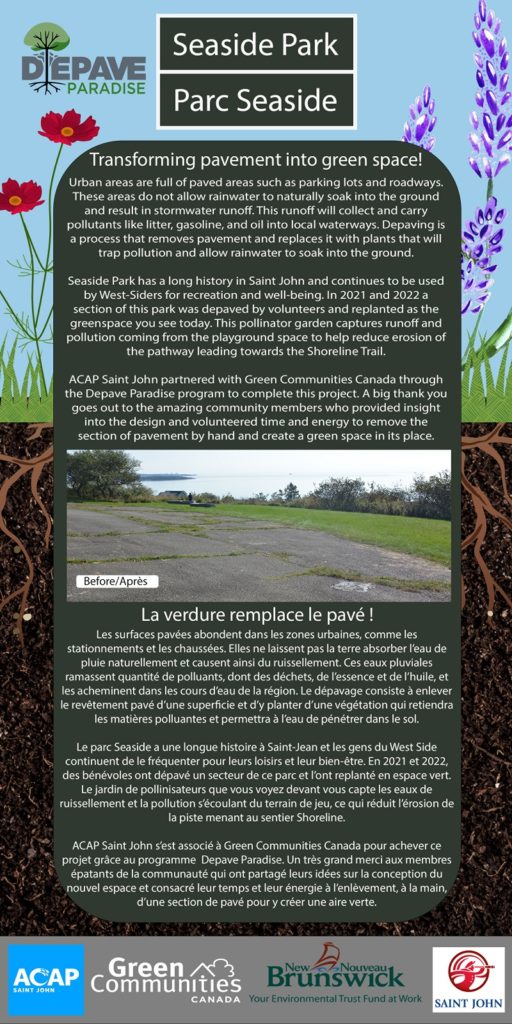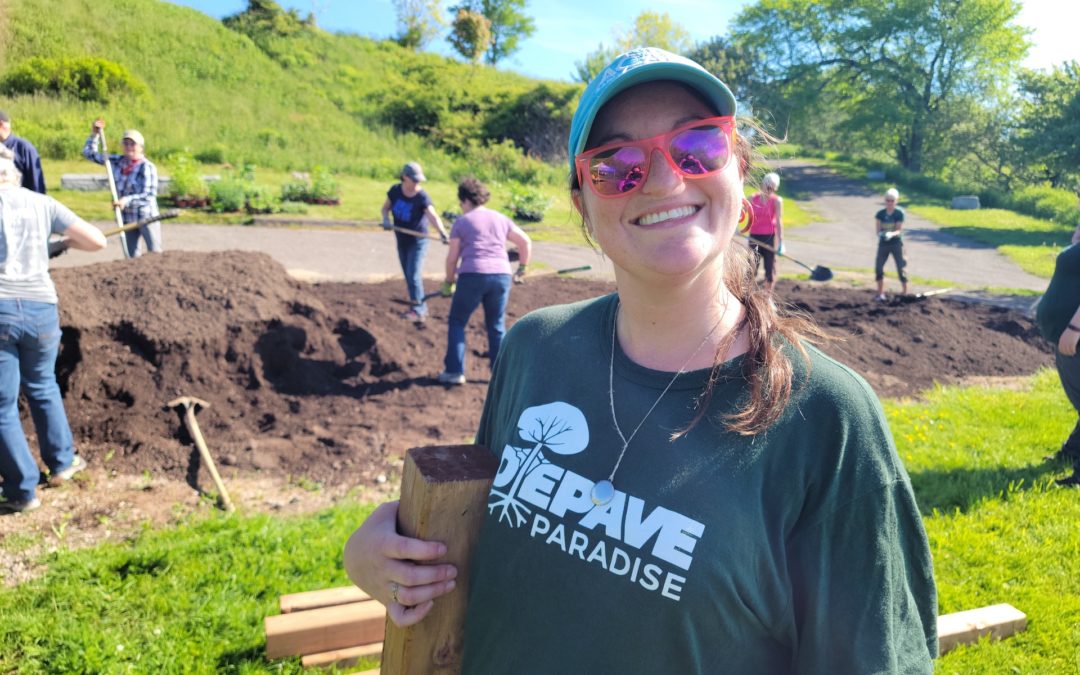What was once a run-down asphalt walkway in Seaside Park, Saint John, New Brunswick, has now been recognized as a vital pollinator habitat by the David Suzuki Foundation!  The recognition came after the site was transformed into an urban greenspace featuring 200 native wildflowers such as asters, milkweed, bee-balm, and irises. The project soon caught the attention of the Butterflyway Project — an initiative of the David Suzuki foundation, which recognizes and encourages butterfly-friendly plantings and pollinator patches in local communities across Canada.
The recognition came after the site was transformed into an urban greenspace featuring 200 native wildflowers such as asters, milkweed, bee-balm, and irises. The project soon caught the attention of the Butterflyway Project — an initiative of the David Suzuki foundation, which recognizes and encourages butterfly-friendly plantings and pollinator patches in local communities across Canada.
The park underwent change through the Depave Paradise program, with the help of nearly 60 volunteers locally coordinated by ACAP Saint John, and supported by the City of Saint John. The volunteers initially gathered in November 2021 to remove the asphalt from an area of 130 m2 overlooking the bay, and spread wildflower seeds which overwintered and began to bloom this spring.
The community participants returned to the location this summer to complete the planting with over 30 different species of prairie grasses, wildflowers, and shrubs that create a habitat for birds, bees, and other local pollinators.
The newly installed green infrastructure feature also helps reduce runoff, and soak up stormwater from the adjacent parking lot and hillside, protecting local water quality and reducing flooding!
Seaside Park is New Brunswick’s first major Depave Paradise project, and given its success we believe it won’t be the last!
Check out our resource page to learn more about how to use native-plants to restore natural drainage and manage stormwater, including how to build and design residential rain-gardens.
